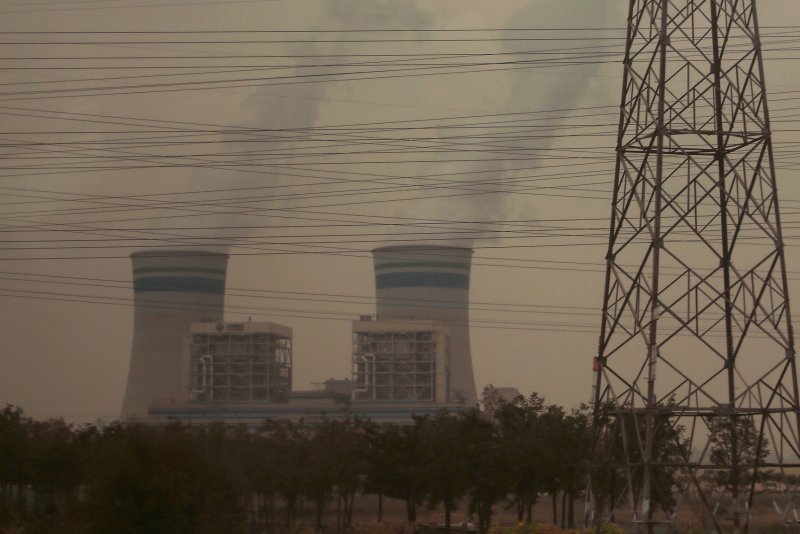Chinese efforts to control air pollution are showing results, but they could come at a cost, analysis from consultant group Wood Mackenzie found. File Photo by Stephen Shaver/UPI |
License Photo
July 9 (UPI) -- Chinese officials boasted of advances in the fight against air pollution, though a shifting energy landscape could carry a cost, a consultant group said.
An air monitoring report published Monday by the Chinese government showed particulate matter, which contributes to climate change and adverse health, declined by nearly 23 percent last year when compared with 2013. The report attributed the change in part to an 8.1 percent decline in the use of coal and the 6.3 percent increase in clean energy consumption over the last five years.
China's so-called Blue Sky initiative calls for the eventual retirement of smaller coal-fired power plants.
"Not surprisingly, renewable energy continues to be favored as a key enabler towards cleaner air," Prakash Sharma, the head China research at consultant group Wood Mackenzie, said in a report emailed to UPI.
The International Renewable Energy Agency estimates that 60 percent of all renewable energy jobs are in the Asian economies. For the solar panel industry, China has about 60 percent of the payrolls, representing about 2.2 million employees. China also accounts for 44 percent of the payrolls in the wind energy industry.
The Central Committee of the Communist Party of China in late June outlined goals for air quality and the broader environment from 2020. Emissions of sulfur dioxide and nitrogen oxides, both greenhouse gases, are to decline by 15 percent from 2015 levels under the plan.
Combined heat and power plants fueled by natural gas, meanwhile, could be phased out of some parts of the Chinese market under the Blue Sky initiative, which Wood Mackenzie said was in response to seasonal shortages of natural gas. The government could also enact higher tariffs on inefficient and outdated power operations to push them out of the market, which Sharma said could lead to higher production costs.
Another challenge for China is many of the commodities that would be used to advance low-carbon goals aren't produced competitively.
"Additionally, a large portion of existing capacity will now require stricter supervision and environmental compliance," Sharma said. "As a result, we expect domestic costs to rise and production curbs to increase."
The Chinese government has recognized that controlling air pollution is one of its tougher goals as it looks to continue industrialization and economic growth. Legislators on Monday started a two-day extraordinary session to consider air pollution control.















